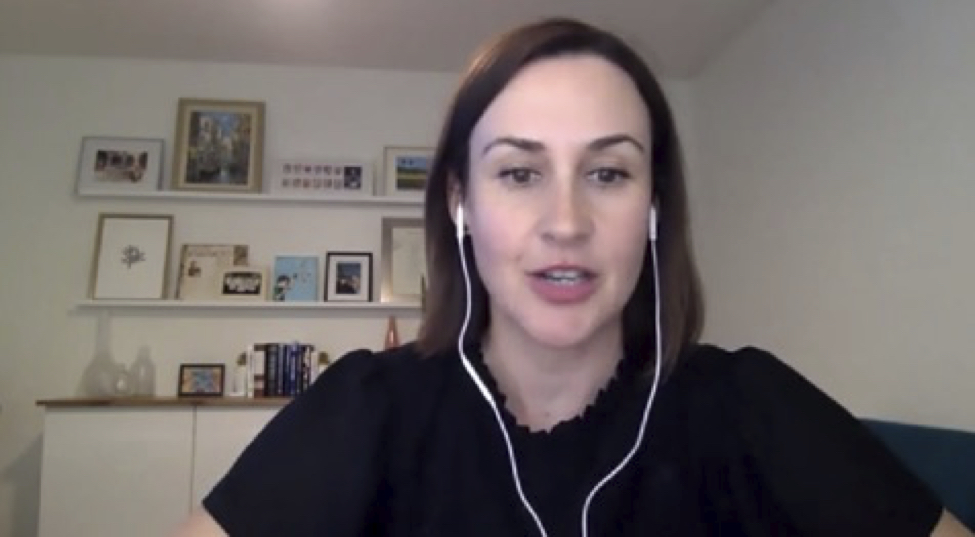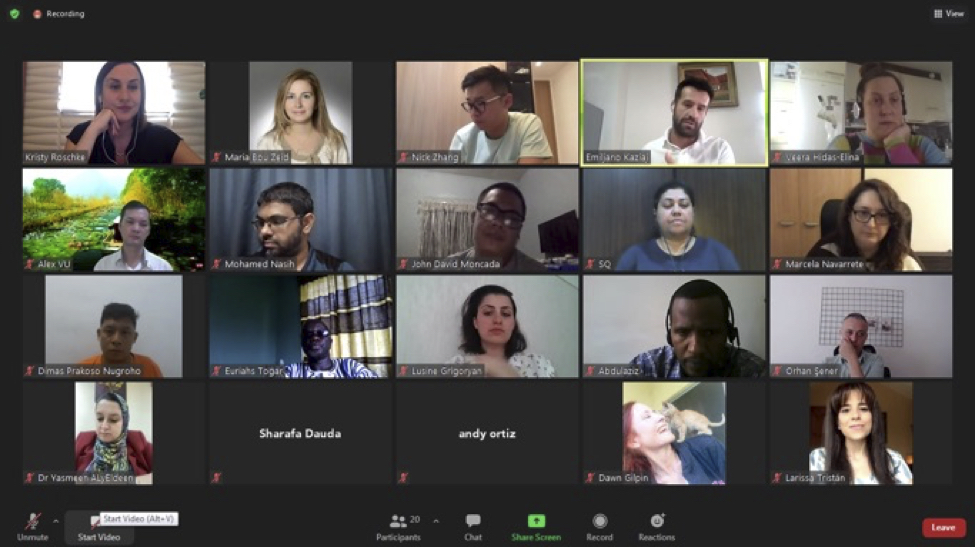Today marked the official academic start of the “Study of the US Institute (SUSI-2021) on Journalism, Technology and Democracy program” in its hybrid part. The main theme on the agenda was mis- and disinformation in our current world. The activities were led by Dr. Kristy Roschke, Managing Director of the Cronkite News Co/Lab.
The asynchronous component consisted of two pre-recorded sessions in which Roschke tackled the latest trends in mis and disinformation research and the importance of digital media literacy in a cluttered and chaotic media environment.

This was followed by a synchronous discussion dealing with the strong relation between media literacy and misinformation around the world. The discussion questions were the following:
- What are the media literacy challenges and priorities in your community?
- What resources do you use?
- And what resources would be useful?

The participants shared their experiences pertaining to information disorder in their countries. Emiljano from Albania considered that “technology is developing faster than our capacity to engage with it in a critical way,” which is going to be more problematic in the future.
Meanwhile Lusine (Armenia) raised the issue of public trust in media, noting that “people who participate in our trainings often ask why media is not censored so that we can trust it as a verified source.”
From her side, Veera shared the advanced strategies of media literacy adopted in her home country: “In Finland, we teach media literacy in primary schools.”
Prebunking or Debunking
In order to fight misinformation and disinformation amid this chaotic media landscape some initiatives are concentrating on prebunking fake news to reach information herd immunity.
Prevention is always better than a cure; the world needs more than ever media literate citizens who can navigate information critically and analytically.
Towards a Pedagogy of Engagement
To put it in a nutshell, the participating scholars do realize the importance of their role as agents of change in their countries and communities and will definitely make the most of their SUSI experience to improve their media literacy best practices and pedagogical styles.